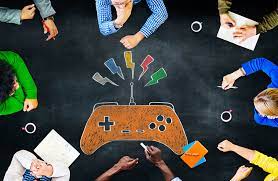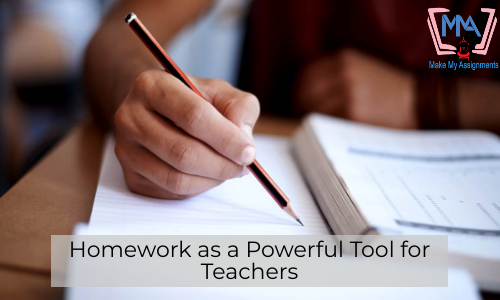
The Role of Educational Games in Skill Development
In the realm of education, the integration of technology has revolutionized traditional learning methods. One significant development in this regard is the emergence of educational games, which have garnered attention for their potential to enhance skill development in learners of all ages. These games offer a dynamic and engaging platform that not only entertains but also educates, fostering the acquisition of various skills vital for success in today’s world.

Understanding Educational Games
Educational games, often referred to as “edutainment,” are designed to combine entertainment with educational content. They encompass a wide range of formats, including digital apps, board games, card games, puzzles, and interactive simulations. What distinguishes them from conventional games is their deliberate focus on incorporating learning objectives within gameplay.
Skill Development Through Play
- Cognitive Skills: Educational games stimulate cognitive functions such as problem-solving, critical thinking, and decision-making. By presenting players with challenges and puzzles to solve, these games encourage analytical thinking and the development of strategic approaches to problem-solving.
- Academic Proficiency: Many educational games are tailored to specific academic subjects, such as mathematics, language arts, science, and history. By presenting educational content in a fun and interactive manner, these games help reinforce classroom learning and improve academic performance.
- Creativity and Innovation: Certain games, particularly those centered around building, designing, or storytelling, promote creativity and innovation. Players are encouraged to think outside the box, experiment with ideas, and express their imagination in a structured environment.
- Collaboration and Communication: Multiplayer educational games foster collaboration and communication skills by requiring players to work together towards a common goal. Whether cooperating to solve a puzzle or strategizing as a team, players learn the importance of effective communication and teamwork.
- Adaptability and Resilience: Games that present dynamic challenges and adaptive difficulty levels help develop adaptability and resilience in players. By facing setbacks and overcoming obstacles within the game environment, individuals learn to persevere and adapt their strategies to changing circumstances.
- Digital Literacy: In an increasingly digital world, proficiency with technology is essential. Educational games provide a hands-on opportunity for players to develop digital literacy skills, including navigating interfaces, using software tools, and understanding digital systems.
Advantages of Educational Games
- Engagement and Motivation: Unlike traditional learning methods, educational games captivate learners through interactive gameplay and immediate feedback, fostering intrinsic motivation and sustained engagement.
- Personalized Learning: Many educational games incorporate adaptive algorithms that tailor the gameplay experience to individual learner preferences and proficiency levels, allowing for personalized learning experiences.
- Accessibility and Inclusivity: Educational games can be designed to accommodate diverse learning styles and abilities, making learning more accessible and inclusive for all learners, including those with special needs.
- Real-World Relevance: By contextualizing learning within meaningful scenarios and simulations, educational games help bridge the gap between theoretical knowledge and real-world application, enhancing the relevance and applicability of skills learned.
- Continuous Assessment: Through built-in assessment mechanisms, educational games provide real-time feedback on learner performance, enabling educators to track progress, identify areas for improvement, and adjust instruction accordingly.
Challenges and Considerations
While educational games offer numerous benefits, their effectiveness depends on thoughtful design and implementation. Some key considerations include:
- Balancing Entertainment and Learning: Designers must strike a balance between making games entertaining enough to engage players and ensuring that educational content remains the focus.
- Quality of Content: The efficacy of educational games hinges on the quality and accuracy of the educational content embedded within them. Rigorous research and collaboration with educators are essential to ensure that games align with curriculum standards and learning objectives.
- Equity and Access: Access to educational games may be limited by factors such as socio-economic status, technological infrastructure, and digital literacy. Efforts must be made to address these disparities and ensure equitable access to educational resources for all learners.
- Monitoring Screen Time: While educational games can be valuable learning tools, excessive screen time can have adverse effects on health and well-being, particularly in children. It’s important to establish healthy screen time habits and encourage a balanced approach to technology use.
In the realm of educational gaming, MakeMyAssignments stands as a pivotal platform offering tailored support to students seeking to maximize their learning potential through engaging gameplay. By leveraging the resources and expertise provided by MakeMyAssignments, students can access a multitude of benefits aimed at enhancing their skill development within the context of educational games.
Customized Game-Based Learning Solutions
MakeMyAssignments recognizes the diverse needs and preferences of learners and offers customized game-based learning solutions tailored to individual requirements. Whether students are struggling with specific academic concepts, aiming to enhance cognitive skills, or seeking enrichment opportunities, MakeMyAssignments can develop educational games aligned with their learning objectives and interests.
Expertly Crafted Content Integration
The success of educational games hinges on the quality and accuracy of the educational content embedded within them. MakeMyAssignments boasts a team of experienced educators and instructional designers who collaborate closely to ensure that games are not only entertaining but also pedagogically sound. By integrating expertly crafted content into gameplay mechanics, MakeMyAssignments ensures that students receive meaningful learning experiences that reinforce key concepts and skills.
Personalized Learning Pathways
MakeMyAssignments understands that every student learns at their own pace and has unique learning preferences. Through sophisticated algorithms and adaptive learning technologies, MakeMyAssignments creates personalized learning pathways within educational games, allowing students to progress at a pace that suits their individual needs. By adjusting the difficulty level, pacing, and content presentation dynamically, MakeMyAssignments ensures that students remain engaged and challenged throughout their gaming experiences.
Comprehensive Support and Feedback
Learning through educational games is most effective when students receive timely feedback and support. MakeMyAssignments provides comprehensive support mechanisms within its gaming platforms, offering real-time feedback, hints, and explanations to help students overcome challenges and reinforce learning. Additionally, educators and tutors are available to provide personalized assistance and guidance, ensuring that students have the resources they need to succeed.
Integration with Academic Curriculum
MakeMyAssignments recognizes the importance of aligning educational games with academic curriculum standards and learning objectives. By working closely with educators and curriculum experts, MakeMyAssignments ensures that its games complement classroom instruction and support academic goals. Whether used as supplemental resources or integrated into formal lesson plans, MakeMyAssignments’ educational games enhance the relevance and applicability of learning outcomes across various subjects and grade levels.
Promoting Equity and Accessibility
MakeMyAssignments is committed to promoting equity and accessibility in education. Through partnerships with schools, community organizations, and educational institutions, MakeMyAssignments strives to expand access to its educational gaming platforms, particularly for underserved populations. By addressing barriers such as socio-economic disparities, technological limitations, and language barriers, MakeMyAssignments aims to ensure that all students have the opportunity to benefit from high-quality educational experiences.
Incorporating educational games into learning experiences offers numerous benefits for students, from enhancing academic performance to developing critical skills for success. MakeMyAssignments plays a vital role in this process by providing customized game-based learning solutions, expertly crafted content integration, personalized learning pathways, comprehensive support and feedback, alignment with academic curriculum, and a commitment to promoting equity and accessibility. By leveraging the resources and expertise offered by MakeMyAssignments, students can unlock their full potential and embark on a journey of immersive and engaging learning experiences that prepare them for success in the digital age.



